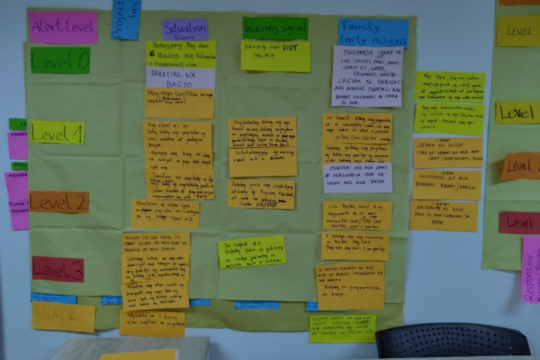On 2 January 2024, the Asian Disaster Preparedness Center (ADPC) hosted Dr. Christopher Elias, President of the Global Development Division of the Bill & Melinda Gates Foundation (the Foundation), at the ADPC headquarters in Bangkok. Dr. Elias was welcomed by a delegation from ADPC, including Mr. Hans Guttman, Executive Director and Mr. Aslam Perwaiz, Deputy Executive Director of ADPC, and Dr. Sisira Madurapperuma, Director of the Preparedness for Response and Resilient Recovery (PRR) Department.


For over a decade, ADPC has collaborated with and received technical support from the Foundation for the implementation of disaster preparedness programs, including those centered around health emergencies. The meeting provided a valuable platform for discussing experiences and impacts derived from the partnership between ADPC and the Gates Foundation.
During the meeting, Dr. Sisira Madurapperuma, Director of the Preparedness for Response and Resilient Recovery (PRR) Department, highlighted ADPC’s interventions in Bihar, India, supporting the state government in fortifying the resilience of disaster management, health, and agriculture systems. Additionally, ADPC’s collaboration with the government of Ethiopia to enhance institutional capacity and emergency response preparedness was emphasized. The Asian Preparedness Partnership (APP), a joint initiative by ADPC and the Foundation, was spotlighted as an innovative model for localization in the region. Dr. Madurapperuma also highlighted the health-related program interventions undertaken by ADPC, such as the Hospital Preparedness for Emergencies (HOPE), Public Health and Emergency Management in Asia and the Pacific (PHEMAP), Epidemic and Pandemic preparedness activities and training, interventions in partnership with WHO, and training under the Program for Enhancement of Emergency Response (PEER) program.
During the meeting, future priorities and collaboration areas were explored. Dr. Elias highlighted the need for women’s leadership in disaster risk reduction and discussed opportunities to engage female frontline health workers and volunteers for emergency preparedness. He also emphasized the necessity for enhanced regional collaboration in pandemic preparedness and response. Discussions also encompassed continued efforts to support localized disaster preparedness, developing skills for health preparedness at the community level, promoting transformative women leadership in Disaster Risk Reduction, and enhancing the coordination between disaster management and health ecosystems, including EOCs at the national and sub-national levels.




